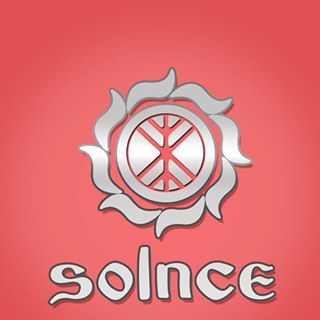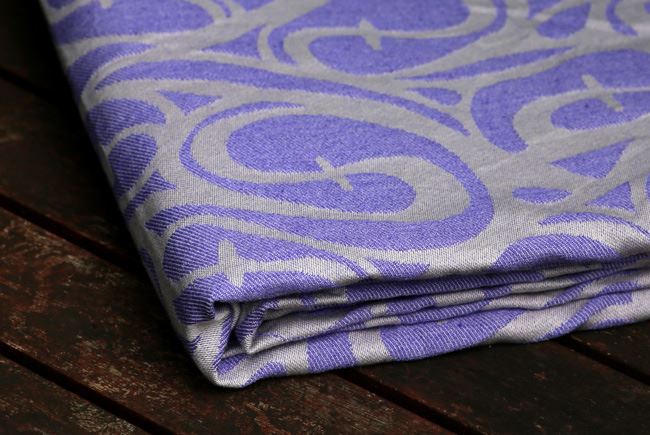Warp: 50% silver gray combed Egyptian cotton. Weft: blended yarn with 25% paisley purple natural bamboo (bamboo linen) and 25% paisley purple tussah silk
290gr/m2
size 4 - 270€, size 5 short - 290€, size 5 - 300€, size 6 short* - 290 size 6 - 330€, size 7 short - 345€, size 7 - 360€
* this wrap has a weaving flaw which does not affect the safety of the wrap
This wrap is made from combed Egyptian cotton and a luxury blend of natural bamboo and tussah silk. The new wrap feels solid and dense in hand. But the first wash will make it floppy, moldable and cushy wrap, with just enough bounce to stay gentle for your shoulders. The wraps requires a moderate breaking in period. The natural bamboo and tussah silk blended yarn makes the wrap soft enough for newborns, but perfectly strong and supportive for toddlers.
More information about natural bamboo (bamboo linen)
There are two ways of processing the bamboo plant to create yarn. The first is a mechanical process, creating what is informally called bamboo linen, and the second, more popular approach, is the chemical process used for producing rayon or viscose fabric.
Mechanically produced bamboo - natural bamboo (bamboo linen)
Mechanically produced bamboo yarn requires no chemicals, pesticides or fungicides. Using a process similar to the one that produces linen from flax, bamboo fibers are raked and combed into long strands. The fibers are then drawn out and spun into a yarn that is silky and smooth to the touch.
There is very little natural bamboo on the market and the yarn is hard to find, becuse the production process is more labor intensive and costly.
Chemically processed bamboo
The method for producing bamboo viscose yarn requires a series of steps similar to those used for other rayon yarns. The process uses chemical solvents to dissolve the bamboo cellulose into a viscose solution.
Hydrogen peroxide is added as a stabilizer and the solution is forced through spinnerets into a hardening bath which causes thin streams of viscose bamboo solution to harden into bamboo cellulose fiber threads.
The hardening bath is usually a solution of water and methanol, ethanol or a similar alcohol. The regenerated bamboo fiber threads can then be spun into bamboo yarn for weaving into fabric.

Solnce has evolved as a result of my passion for unique textiles and fine natural fibers. It all has started with the babywearing of my first child, expanded into one of the first babywearing shops in the Netherlands. Thousands of all kinds of wraps have passed through my hands and I started appreciating not only all the great benefits of the woven wraps for the parenting, but also the creative part of making wraps.
Making of textile has always been an art in the history of human kind. I have travelled to Prague to study the art of handweaing from the master, artist and an established legend in the world of babywearing. There, in the small studio I learned not only to weave the legendary wrap, but to see the art in every yarn, every knot, every shift of the handloom.
This has inspired me to start the Solnce wraps production. Even though my wraps are woven on the machine loom, I'm involved into the production at every stage. The Solnce wraps are made in the Netherlands of the premium yarns from the best and trusted manufacturers.
The time when our children are small is a very intense, wonderful and rewarding time in our lives. I believe that babywearing is one of the ways to get the most out of it. And it is my pleasure to accompany you during this period with the Solnce wraps which I make with lots of love and passion.
Olga

